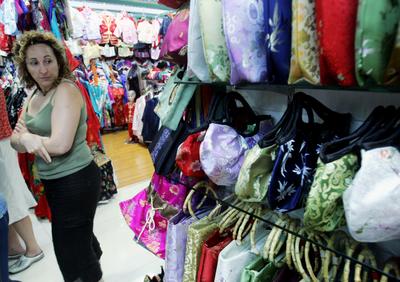Last week Secretary Clinton repeated her message in a speech at the East-West Centre in Honolulu. So where does this leave Europe?
Judging from Secretary Clinton’s words, unless Europe is involved in Asia it will not have a meaningful say in the future of politics. If that is true — and the very fact that US foreign policy is increasingly focused on Asia is a strong indicator of the region’s importance — the prospects for Europe’s role in the Pacific century are not promising. Although she became the EU’s High Representative for Foreign Affairs nearly two years ago, Catherine Ashton is yet to attend a major multilateral meeting in Asia. Ms Clinton’s message should be a wake-up call for Europe’s leaders and policy makers. The EU can and should do much more than it is doing, in order to be seen and heard in the coming decades.
To begin with, it is essential that each year High Representative Ashton attend the ASEAN Regional Forum (ARF). Secretary Clinton envisions a durable transpacific economic and security architecture, in which the US plays a major role. APEC is one main building block for this architecture, dealing with economic issues, and the ARF is another, this time for security matters. Recently, with very active participation from the US, two new building blocks have been added on the security side: the East Asia Summit (EAS) and the ASEAN Defence Ministers’ Meeting+8. In addition, the US-China Security and Economic Dialogue is emerging as the most influential bilateral mechanism in the Asia Pacific region.
Ms Ashton cannot afford to stay away from the ARF, given it is the only major transpacific forum of which the EU is a member. Moreover, not attending the ARF severely limits the EU’s chances of becoming a member of the EAS, which is on track to becoming the primary summit for security affairs in the Asia Pacific. The EU will not be visible in Asia unless it is adequately represented at the ARF and, as soon as possible, the EAS.
The EU should also cooperate closely with the US to strengthen its economic competitiveness. Even though traditionally the US and the EU are economic competitors, they face a common challenge from Asia’s main economic power, China. Competition with China is not limited to rivalry between firms or sectors, but exists also at the level of economic systems. The Chinese government intervenes in the economy far more directly than is the case in the West. In many instances, this increases the competitiveness of Chinese firms vis-à-vis their Western counterparts. Secretary Clinton indicated that it is particularly important for the US to address this issue and other matters related to China’s state-centred economic system and policies. Washington will be able to do so far more effectively if it works closely with Brussels, and vice versa. Western economies will need to find new strategies to increase their competitiveness without resorting to protectionism or entering an economic policy stand off with China.
Ms Clinton also made statements on US security policy in Asia. These, too, are highly relevant for Europe. In this regard the EU should adopt a neutral stance. The US government seems determined to maintain and strengthen its military role in Asia in order to keep pressure on a rising China. This strategy is unrealistic at best, given the high costs involved. At worst, it could lead to regional instability or even an armed conflict between the US and China. In the long run, American attempts to keep China from becoming a dominant power in East Asia are likely to be futile — as would be Chinese short-term attempts at forcing the US out of the region.
According to Henry Kissinger, the US and China should form a Pacific community through co-evolution. This requires Washington to take the difficult step of accepting Beijing as its equal. Given the EU’s large interest in transpacific stability, it must act as a neutral, but visible, observer and commentator on geopolitical stability in Asia. While the EU cannot be a transpacific power, it should strengthen its visibility in this strategically crucial region. For the EU to prosper and be secure in the Pacific century it needs a focused and active Asia policy.
Frans-Paul van der Putten is a Senior Research Fellow at the Netherlands Institute of International Relations ‘Clingendael’ in The Hague.
This is a revised version of an article originally published on Atlantic Community as part of the feature ‘Europe in America’s Pacific Century’.

